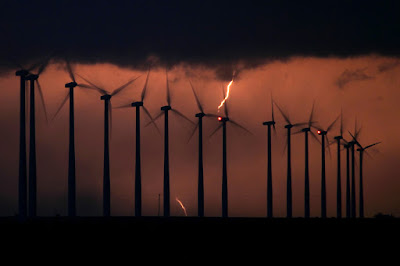Does a thinking person today have a chance of figuring out what to think about climate change? On the one hand, we are told there is a scientific consensus that humans are changing the climate. On the other hand, the most pessimistic future scenarios strain our credulity. The most extreme example may be the retired professor who believes that we will all be dead by 2026.
The activist group Extinction Rebellion is telling us that climate change represents “an unprecedented global emergency” and is calling for radical measures to deal with it. Such claims seem to be gaining ground and appearing with increasing frequency in the media. And according to a recent poll, nearly half of Americans believe climate change will result in the end of the world within the next 200 years.
Even among the more optimistic, many find it prudent to consider the worst case, but have very little information to help them decide where to draw the line between farsightedness and fantasy. And I understand those who assume that even though some claims may be exaggerated, surely with so much smoke, there must be a fire somewhere. A headline like “UN Says Climate Genocide Is Coming. It’s Actually Worse Than That,” implies that even discounting the exaggeration, it’s still “climate genocide.”
At the extreme, worst-case or precautionary thinking is analogous to Pascal’s wager and subject to similar objections. If we should pull out all the stops to prevent climate catastrophe no matter how improbable it might be, why not some other, equally improbable disaster? As long we have finite resources to devote to preventing disasters and a virtually unlimited ability to imagine them, this creates impossible dilemmas. Fortunately, there has been some realistic exploration of worst cases among climate scientists and others recently. They can supplement the IPCC reports which, though far from perfect, have the advantage (at their best) of summarizing the available evidence, avoiding the “single study syndrome.”
Alarmist claims come in two flavors: one vague and ambiguous, the other exaggerated and misleading. The vague kind conjures up an ominous sense of dread, just as monsters in horror movies can seem scariest before they actually appear. From a seemingly sober analysis at CNN:
But the scale of the outrage [about climate change] in no way matches the magnitude of this disaster, which, like WWII, threatens to cripple or even obliterate human life on the planet as we know it.
What does this even mean? Did WWII “cripple” or even “obliterate” human life in general? It was catastrophic and horrific, of course — much had to be rebuilt afterwards, and many were still suffering, but was human life overall fundamentally and irrevocably worse after the war ended? On a superficial reading, this passage could easily be understood as “climate change will kill us all,” whether or not that was the intended message.
Source: Dagfinn Reiersøl | Quillette

No comments:
Post a Comment